Questionthanks for your reply chrys. i know that the parents are at least 3yrs.old or more but dont know exact age (between 3 and 5) there are 2 other breeding birds (1 pair) in cage that also regularly lay eggs,however they are never fertile and dont hatch,,that is another problem i have to deal with later.the pair of birds we are discussing do lay more than 3 eggs at a time,usually 4 to 6 it just seems that after awile some get broken or damaged and the number works out to about 3.i have not taken the baby birds or parents to vet.all 4 birds in cage are in good health.good apetites,no loss of feathers and all feathers in perfect shape,clear eyes,no discharge from eyes or nostrils,all are vocal and active.the nesting boxes where the deaths occur are pretty clean,no droppings from parents ,the y always step outside to do their business and the shavings are clean and dry,no mold or fungus,also the boxes i put in were new in may of 2006. (p.s.i know that the 2 other birds are not physically harming the chicks)as far as the cleanliness of the cage ,i do clean it quite regularly (not daily though) the cage is ontop of concrete so i normally just hose it out ,and i do this during the warmth of the day and its never wet at night.i also keep parakeets in another flight cage,that cage is separate and 3 feet away.all keets healthy as well.i also looked at some pictures of baby tiels in a book,birds of about same age as my dead chicks and i cant see any obvious problems.it appears that they are getting fed. thanks again and please respond as this is driving me nuts ! as i said i used to raise pigeons,i had 50 birds and i had to separate them or through eggs away immediately just to control population,i never had to fuss like this.** do tiels that were raised in captivity lack parental knowledge that wild birds have? how long does it take to get it right? one more question,my wife wants to remove nesting box now that it is cooling off,i say no,i dont want to keep reintroducing box in spring.my thinking is that if its new in the spring than the process of rearing chicks will be new again,if i leave it in all year they wont forget that its there and thats theirs and their home and i dont want to disrupt cycle....thanks again kris peterson.
-------------------------
Followup To
Question -
help! my baby cockatiel chicks keep dying.****last summer breeding pair had first clutch of eggs.3 hatched 2 died right away,1 lasted 2 weeks.i was not to concerned due to new inexperianced parents.this summer i am on my 3rd clutch of eggs.3 hatched 3 died,and again 3 more new eggs,3 hatched 3 died,3rd batch 3 hatched,1 is dead 2 are on the way.they have been alive only a couple of weeks.the birds are in a flight cage 4ft.w 3ft.d 7ft.tall.they are kept out doors under my patio protected from heat and cold.i live in sacramento,ca.birds are in nesting boxes.birds get daily fresh water in multiple spots,have fresh seed and millet,fresh,vegies including green baby spinach,red leaf lettuce and corn with broccoli.they also have oyster shell and cuttle bone.(no grit)i also add vitamins and minerals to there water.what on earth is the problem.i used to raise pigeons,the hen would lay an egg,the egg would hatch,the chick would grow up and presto another pigeon.why is it so difficult with tiels. thanks kris
Answer -
Hi, Kris. Thanks for posting.
Sorry to hear about all your problems with baby tiels. Is the pair of tiels producing the eggs in the flight cage with any other birds? How old is this pair of adults? Usually, tiels lay 6 eggs in a clutch...is the most eggs this pair laid been 3 eggs per clutch?
There could be any number of problems associated with these babies dying. If this pair is in with other birds, this could be a reason. There could be some type of bacterial or viral infection going around, maybe the babies aren't being kept warm enough, adding stuff to drinking water can be a problem, etc. Have you consulted with or had any of these babies looked at by an avian veterinarian (not a cat/dog vet, but an exotic animal vet)? If not, I highly recommend it immediately. Take both parents and any babies or dead bodies of babies with you when you go to the vet. DO NOT change the substrate in the cage bottom if you transport them in a cage. The vet will want to see droppings.
The avian vet should be able to tell you why these babies keep dying.
Chrys
AnswerHi again, Kris.
Whether you may see it happening or not, I have found through my experiences with colony breeding that it doesn't work with any parrot species. Even though the other birds may not be invading the others' nesting box (they may be invading it and you just don't see it), the parents may be purposely harming/killing their babies because they feel they are in danger. This is Mother Nature. This would also explain why some eggs are getting cracked/damaged...either other birds are hurredly going in and out of the nesting box or the parent birds are doing this in their haste to get in/out. Through normal movement in/out of the nesting box, parent birds don't normally damage/crack their eggs.
You should not be placing anything like shavings in the nesting box. It isn't necessary until the babies hatch and this would be to ensure the babies are kept dry from their feces. Hopefully you are using pine shavings and not cedar...cedar and some other types have oil in them that get on parrot's feathers and eggs/babies.
Something doesn't have to be visible to be a health problem. It's possible these babies could have some type of health problem inside that you cannot see. This is why avian vet intervention is recommended. You need to see if the vet can determine if there is some type of infection/illness/disease affecting these babies.
Do you see any type of bite marks or blood on the babies when you find them dead (would be to the head and/or face most likely)?
The experts in the field of parrots believe that handfeeding baby parrots instead of allowing the parent birds to raise them is resulting in a whole new generation of birds who have lost their instinctual knowledge of caring for eggs/babies. However, this process will take many, many, many years. Also, a lot of what we think is instinctual in animals is actually taught to the babies by the parent birds (learned behavior). For example, daddy bird teaches the babies how to fly, how to maneuver around the cage, what to eat/what not to eat, etc., etc. When we pull parrot babies for handfeeding, we have to do all the teaching that the daddy bird would do. In other words, when I have babies to handfeed, wean, etc., I also have to coax those babies to fly, teach those babies how to land (not that I fly and land, but give them what they need to do so safely), teach those babies how to climb around on cage wire, how to stand on a perch, etc. People don't realize just how much responsibility they acquire when they breed birds and handfeed them.
How long does it take to get it right - they probably already have it right, but it's something else that's going on. It may not be a problem the parent birds are creating at all! Since you haven't had them all to a bird vet for a medical evaluation, the problem could be medically related.
You should only put up a nesting box when you want your tiels to lay eggs/hatch babies. I agree with your wife. This time of year is when parrots/birds molt. They cannot molt and reproduce...it's too much strain/stress on their bodies. It takes every ounce of energy they can muster just to molt. As a matter of fact, a bird won't molt if it's reproducing. However, it can only hold off a molt for so long. Problems will definitely crop up if both are occurring simultaneously. Also, leaving the nesting box up can be stressful on your birds. I believe it makes them feel they are "obligated" to lay when the box is up and it puts unnecessary stress on the birds. They need a breather from breeding in order to get their bodies back to normal again!
Chrys

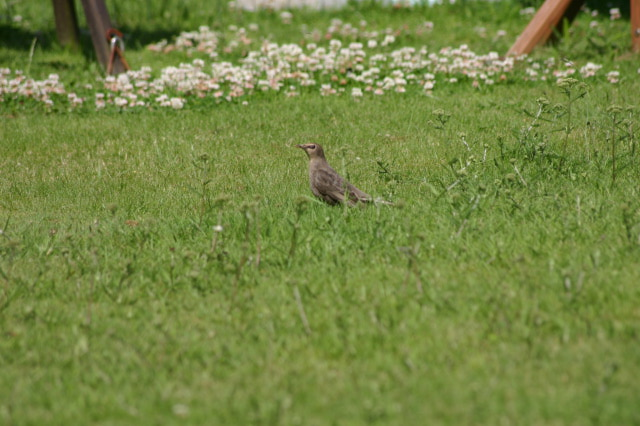 Identification of a bird
Question
Bird name
Please can you advise what th
Identification of a bird
Question
Bird name
Please can you advise what th
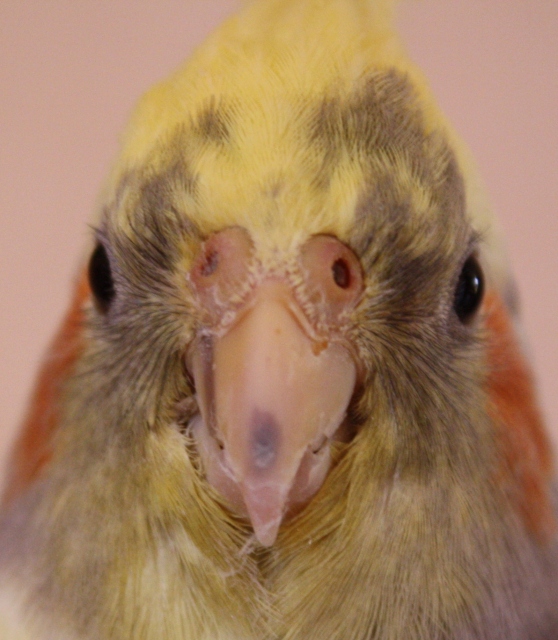 Bruise-like discoloration of beak (Cockatiel)
QuestionSasha
QUESTION: Our Cockatiel has develo
Bruise-like discoloration of beak (Cockatiel)
QuestionSasha
QUESTION: Our Cockatiel has develo
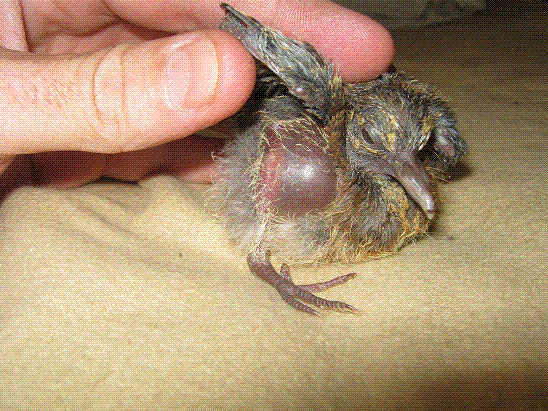 Baby Pigeon
Question
Cosmo
Hi Roger
We picked up a baby pigeon, ap
Baby Pigeon
Question
Cosmo
Hi Roger
We picked up a baby pigeon, ap
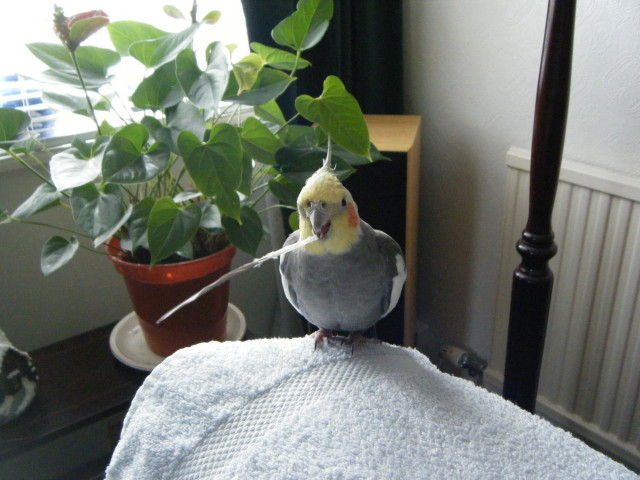 boris the cockatiel
Question
boris
Hello , I have a male cockatiel called b
boris the cockatiel
Question
boris
Hello , I have a male cockatiel called b
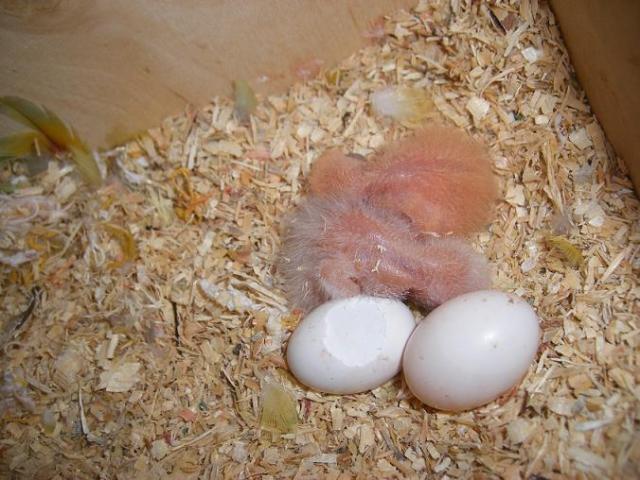 Eggs! :(
QuestionBroken Egg
QUESTION: I understand lovebi
Eggs! :(
QuestionBroken Egg
QUESTION: I understand lovebi